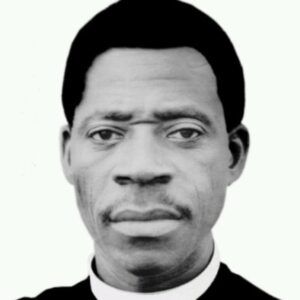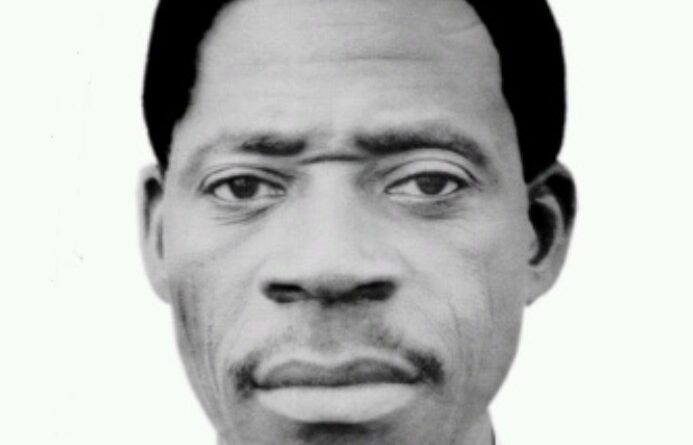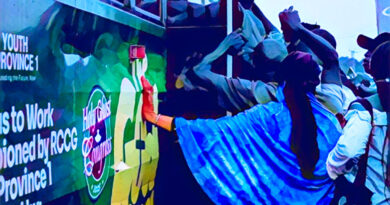October 9, 1928: Apostle Babalola’s Divine Call
 October 9, 1928: Apostle Babalola’s Divine Call
October 9, 1928: Apostle Babalola’s Divine Call
Introduction
On October 9, 1928, a young man named Joseph Ayo Babalola had a divine encounter that changed the spiritual landscape of Nigeria forever. While working as a steamroller operator on the Akure–Ilesa road, he heard a thunderous voice call his name three times, commanding him to leave his job or face death within the year. That moment marked the beginning of a revival that would give birth to one of Africa’s most powerful indigenous churches the Christ Apostolic Church (CAC).
Background
Before his call, Joseph Ayo Babalola was an ordinary man from Odo-Owa, Kwara State, born on April 25, 1904. Raised in a devout Christian home, he grew up with discipline and reverence for God but had not yet encountered the supernatural dimension of faith. After his education, he worked for the Public Works Department (PWD) as a driver and mechanical operator.
It was during one of his routine assignments that heaven interrupted his earthly duty. The booming voice that called him was so vivid and forceful that he immediately knew it was divine. He left the construction site and began to seek clarity through prayer, fasting, and solitude.
This act of obedience would soon evolve into one of the most defining revivals in African Christianity one that emphasized holiness, prayer, and the power of the Holy Spirit.
The Divine Encounter That Sparked a Movement
After his encounter, Babalola spent days praying and asking God what to do. He was later led to meet Pastor D. O. Odubanjo, a prominent faith leader in Lagos, who discerned the authenticity of his experience. Together with other early believers like Oba I. B. Akinyele and Pastor Medaiyese, they began to support the young evangelist’s growing ministry.
In 1930, the divine fire that started on the roadside erupted into a nationwide revival in Oke-Oye, Ilesa. The revival was characterized by mass conversions, healings, and miracles that stunned the nation. Testimonies of the blind seeing, the lame walking, and the oppressed delivered spread rapidly.
That movement became the foundation for what we now know as the Christ Apostolic Church (CAC) the first indigenous Pentecostal denomination in Nigeria.
ALSO READ: Christ Apostolic Church Set to Hold 2025 Heroes of Faith Week at Babalola Miracle Camp
Life of Prayer, Purity, and Power
Apostle Babalola’s ministry was marked by an extraordinary commitment to prayer. He was known to pray for hours sometimes days without food or water. Mountains and forests became his altars. Locations such as Oke-Anu (Mountain of Mercy) and Oke-Ayo (Mountain of Joy) are still pilgrimage sites for believers today.
He preached repentance, holiness, and complete dependence on God’s power. His message was simple yet powerful: “Repent, believe the Gospel, and live a life that pleases God.”
Despite facing persecution, misunderstanding, and physical hardship, Babalola’s humility and obedience remained unshaken. He lived a life that demonstrated the supernatural reality of God’s kingdom on earth.
Legacy of a Revival Apostle
Apostle Babalola passed away in 1959, but his impact continues to ripple through time. Generations after him still draw inspiration from his faith, boldness, and intimacy with God. His life produced not just miracles but a spiritual template for revival that transcends denominations.
Today, the Christ Apostolic Church has spread to more than 60 countries, carrying the message of prayer and holiness to the world. His story reminds us that true ministry is birthed through obedience and sustained by prayer, not fame or fortune.
Many CAC assemblies worldwide mark October 9 as a day of remembrance a day to reflect on God’s faithfulness and the power of divine calling.
Apostle Joseph Ayo Babalola’s life teaches that one man’s obedience can transform nations. His response to God’s call was immediate and complete. He left behind worldly comfort to pursue divine purpose, and through his obedience, millions have encountered God’s power.
In a world filled with distractions and convenience, Babalola’s story challenges today’s believers to ask.
His encounter on that dusty Akure–Ilesa road was not just a historical event; it was a prophetic reminder that God still calls men and women today to carry His light in dark times.
As we commemorate October 9, 1928, let us honor Apostle Babalola’s legacy by walking in faith, prayer, and holiness. His story proves that revival begins with one person who says “yes” to God’s voice.
Content Credit: Moyosola Oni
Image Credit: Google .Com




